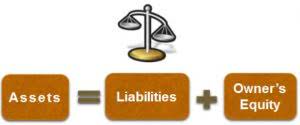
Understanding these differences can help you make more informed decisions, whether you’re hiring someone for your business or pursuing a career in accounting. CPAs are certified accounting professionals who must meet specific requirements and hold a professional license that authorizes them to work as a CPA in their state. Accountants typically need a bachelor’s degree in accounting or a related field. This sets the foundation for managing financial records, understanding tax laws, and handling day-to-day financial operations.
Perform Audits
Accountants and CPAs (Certified Public Accountants) both are essential for business functions, and both roles have an important distinction. All CPAs are accountants, however not all accountants are CPAs—that’s because factors such as licensing, their function, skills, and more differ them. In another case, a business owner accused of failing to report offshore income hires a tax attorney to manage the legal proceedings. The attorney successfully defends the client by proving the income was properly reported, avoiding severe penalties and legal action. Their responsibilities often include developing the business’s budget, reviewing spending proposals, monitoring organizational spending and estimating future financial needs. Budget analysts also produce reports to communicate information about the financial health of an organization to its leaders.
Continuing Education Requirements
Advantage CPA Firm provides accurate and compliant payroll services tailored to meet your business needs, allowing you to focus on growth. In some difference between accountant and cpa instances, accountants also function as financial advisors, taking on the role of fiduciaries to make financial decisions on behalf of clients. Bureau of Labor Statistics, there are roughly 1.3 million accountants in the U.S.

CPA vs. Accountant: Do They Have Different Responsibilities?
Both tax attorneys and CPAs provide essential services, but their roles are distinct. CPAs are best suited for financial planning, tax preparation, and compliance, while tax attorneys handle legal disputes, IRS negotiations, and complex tax law interpretations. Choosing the right professional depends on the nature of your tax issue—whether it requires financial expertise, legal representation, or a combination of both.
As your business expands, though, you will require the services of a financial advisor and tax planner. While a professional accountant will assist you with bookkeeping and payment management, a CPA will assist you with your business’ growth, as well. Obtaining both CA and CPA designations can significantly expand career opportunities. Dual credentials enhance professional credibility and provide access to roles requiring expertise in both local and global accounting standards, such as IFRS and U.S. Additionally, CPAs may join specialised interest groups or committees to connect with peers in their areas of expertise.
- Understanding the distinction is crucial when deciding who to entrust with your business’s financial health.
- Their services may include bookkeeping, tax preparation, financial analysis, and consulting.
- Today, we serve clients from South Florida to California, Maine, Texas, and beyond.
- While CPAs play a vital role in tax compliance and financial management, their ability to handle complex legal tax disputes is limited.
- However, they are still expected to adhere to generally accepted accounting principles (GAAP) and other industry standards.
However, there are other situations when a CPA is the best choice for the job. Specifically, in tax matters, it makes much more sense to hire a CPA who can represent you in an audit. CPAs are in a unique position to offer troubleshooting advice to business owners and individuals who run into a roadblock. A CPA’s extensive experience uniquely qualifies them as the perfect consultant for perspective on challenges that may seem insurmountable at first glance. According to a survey conducted by the AICPA, CPAs are considered some of the business world’s most trusted advisers. This sought-after designation permits CPAs to contribution margin create audited financial statements, such as a profit & loss statement (P&L), balance sheet and cash flow statement.
Industries and Areas Where Accountants Commonly Work
Some CPAs charge hourly rates, while others may offer flat fees for specific services like tax preparation. An individual facing an IRS audit with potential Legal E-Billing penalties for misreported income seeks legal representation from a tax attorney. The attorney negotiates a tax settlement with the IRS, preventing severe financial repercussions and ensuring the client remains compliant with future tax obligations. A small business owner struggling with tax planning hires a CPA to optimize their deductions, streamline bookkeeping, and ensure compliance with federal and state tax laws. The CPA identifies overlooked deductions, recommends a more tax-efficient business structure, and helps the owner reduce their overall tax burden. One of the key advantages of hiring a tax attorney is the protection of attorney-client privilege.

Depending on the specific courses in their master’s program, they may also be better suited for specialized types of accounting, such as international, forensic or sustainability accounting. Both possess accounting expertise and may choose from a variety of career paths. In their daily tasks, they may even share some of the same responsibilities, such as performing audits, offering financial advice and completing tax returns. However, it’s essential to understand their differences when choosing which type of accounting you’d like to pursue. Chartered accountants primarily focus on taxation, applied finance, financial accounting, reporting, and management accounting.
- In this example, I’ve clicked “Currency,” and I can then choose the number of decimal places, the symbol, and how negative values are displayed.
- For example, a public corporation, a large international company, or a business with complex tax needs will benefit from hiring somebody with training in these specific areas.
- Accountants are responsible for maintaining and analyzing financial records, tracking cash flow, and preparing tax documents.
- Due to their higher skill level, in most cases, CPAs earn more than general accounting professionals.
- Whether you opt for a CPA or an accountant, FreshBooks makes your financial management easier than ever.

Forensic accounting focuses on the investigation of potential fraud and financial crimes, such as embezzlement. There are many professionals who play their parts in building a supportive financial foundation for individuals, families and businesses. Bookkeepers, accountants and Certified Public Accountants (CPAs) are chief among these roles. CPAs must complete continuing education hours every year to maintain their license and keep up with new laws and accounting practices.

